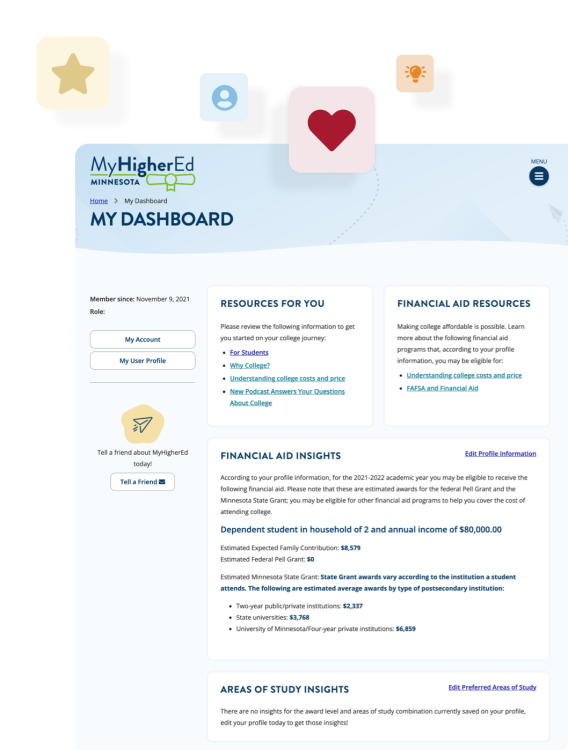A college education teaches us to think critically and abstractly, to express our thoughts and opinions, to weigh options, and make informed decisions. College exposes students to a world of information as they explore their interests, and helps them understand the issues that connect communities, the nation, and the world.
Regardless of career choice, an education beyond high school will foster in students intellectual curiosity and passion to achieve their professional goals. In terms of competitiveness, acquired postsecondary skills, such as critical thinking and advanced technology, are important for success in today's ever-changing workforce. A culture of resilience, ongoing learning, and adaptability is highly valued by employers.
Most importantly, a degree can deliver more career and job options. A person with a college certificate or degree (associate, bachelor's degree or higher) typically has a higher income and is less likely to be unemployed or underemployed than someone with a high school diploma.
Education Beyond High School Matters
Education and training can positively impact the economic stability and well-being of Minnesotans. According to the Office of Higher Education analysis of 2019 data from the Minnesota Department of Employment and Economic Development, over 68 percent of the jobs that pay a sustainable living wage require education or training beyond high school. Here are other reasons for you to bet on higher education and complete a degree:
Exploring Careers?
Find your educational pathway and match it to employment opportunities using DEED's Career Pathways tool.
- Depending on your career plan, it is likely that you will require a postsecondary credential (certificate, associate, bachelor’s, master’s, doctoral or professional degree).
- An estimated 66% of future job openings in Minnesota for jobs that pay a sustainable wage will require a postsecondary certificate or degree.
- Workers without a postsecondary credential are twice as likely to be unemployed.
- Along with the higher unemployment rates, the median weekly income for a full-time worker with a high school diploma alone is $730. The median weekly income for full-time worker with a bachelor’s degree is $1,198.
- Holding a degree will also play a role in determining your earning power long after graduation. Across all degree levels, data on the class of 2010’s hourly wages shows that their earning power grew significantly from the second to the eighth year after graduation. Hourly wages for graduates with a certificate rose 43.3 percent over that period, while the hourly earning power of individuals with a graduate degree increased by 35.4 percent.




